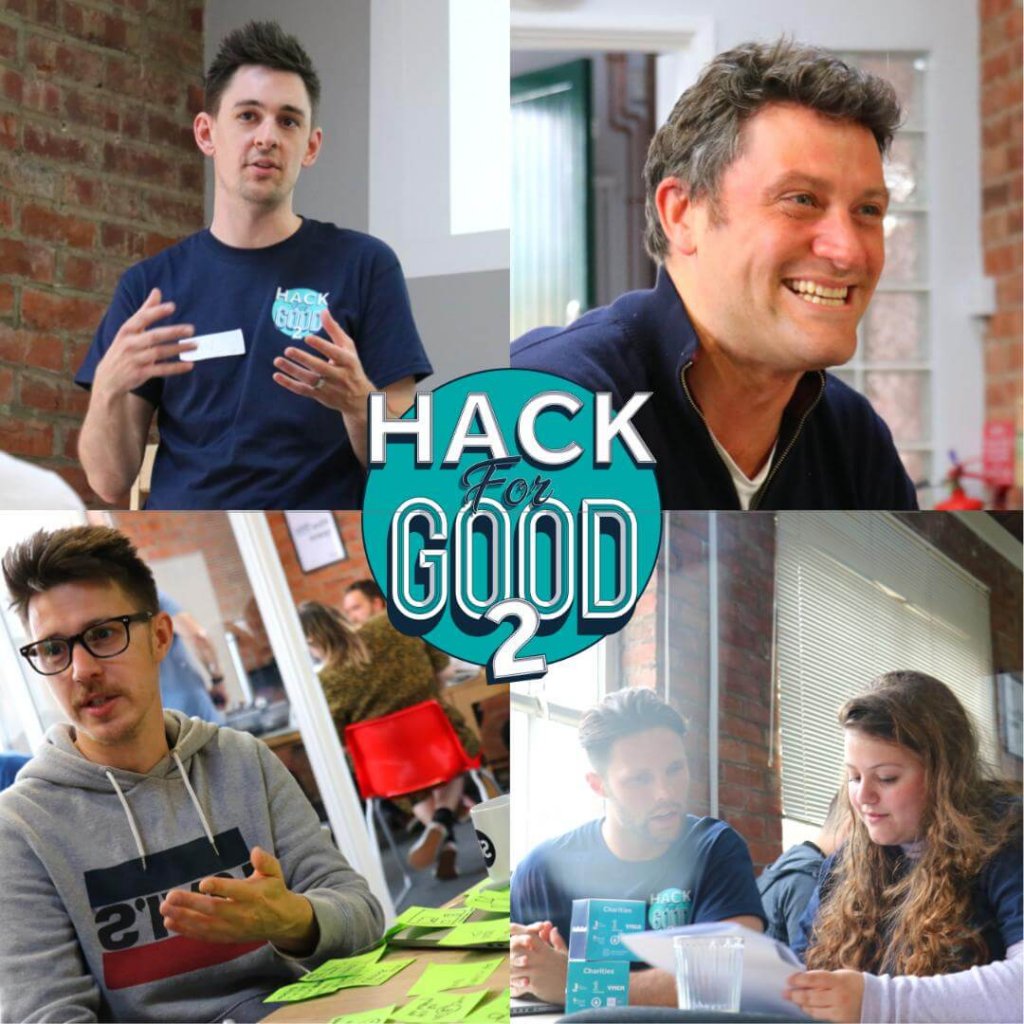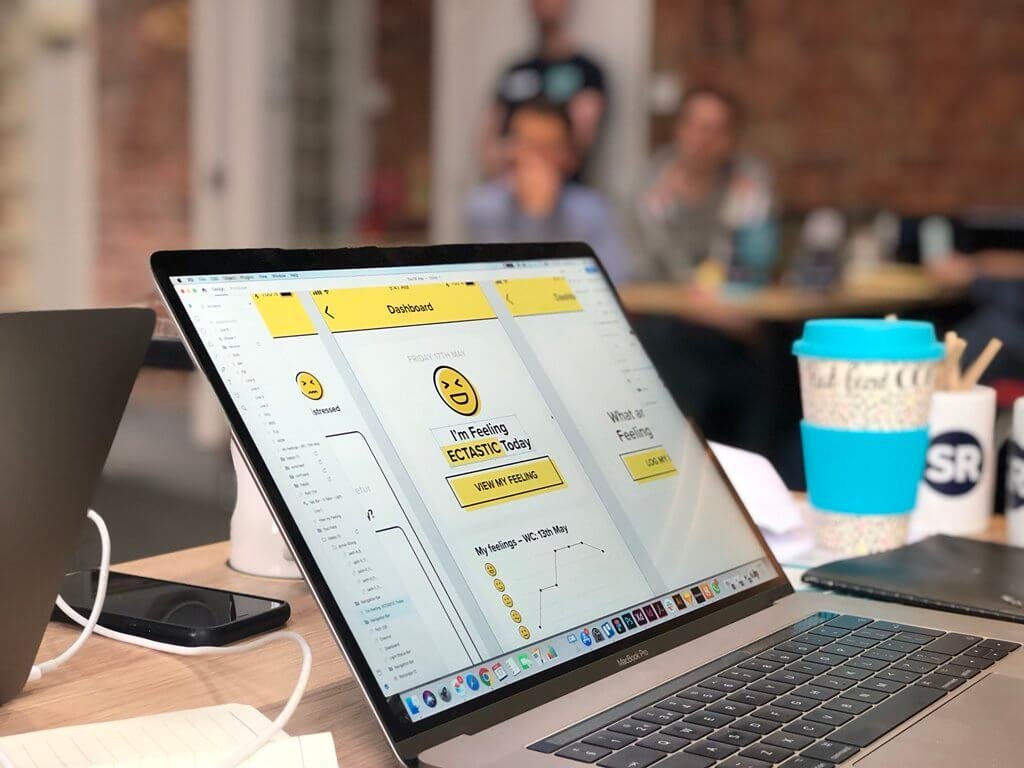Hack For Good
Hey! Just so you know, this article is over 2 years old. Some of the information in it might be outdated, so take it with a grain of salt. I'm not saying it's not worth a read, but don't take everything in it as gospel. If you're curious about something, it never hurts to double-check with a more up-to-date source!
Hack for Good, the sequel, is a hackday put on by the Studio Republic during Mental Health Awareness Week 2019 - May 17th.
The hackday involved local digital agencies using their problem-solving abilities to create solutions for issues faced by national charities. All teams were given briefs supplied by charities, each brief followed the theme of body image; how we think and feel about our bodies.

Who Participated?
#There were a large community of participants on the day, from charities to agencies, to guest speakers, to... well anyone who wanted to give their time to a good cause.
It was inspiring to hear from charity leaders looking to make a change on the world and I was proud to see so many digital agencies set aside time otherwise reserved for commercial clients to work on projects which can positively impact people's lives.

Agencies
#- Studio Republic
- Etch
- Steadfast Collective
- The Idea Bureau
- Rareloop
- Myself (Jack Pritchard), Studio Republic kindly put up with me for the day on their team

What Was Built?
#Studio Republic
#The Studio Republic team took on the challenge of developing an interactive digital product or service that promotes positive body image and utilises the technology available in modern classrooms.
The brief set by Solent Mind aimed to extend their services beyond the classroom sessions they held -
We want to ensure that our advice and support has the ability to inspire children long after we leave the classroom, by leaving them with an interactive product that promotes positive body image and fully utilises the technology found in a modern school, such as electronic, whiteboards, tablets or smartphones.Solent Mind
The final output of the day was an interactive prototype developed in Adobe XD which previewed an online application for students to participate in a game, the game promotes positive support to the students and their peers in the form of advice that they would give in scenarios surrounding body image.
As well as the interactive prototype, the Studio Republic development team whipped up an MVP (Minimum viable product) demo of the functionality that would be included in the final product.
https://twitter.com/studiorepublic/status/1129413543781175296
The demo included user accounts, a messaging system, a poll system to vote on topics for the class to discuss, and e-resources for those looking for further information on issues they address in class.
Etch
#The Etch team took on the task of enabling the elderly to stay in touch with family, friends and their community.
The original brief set by One Community included the following -
It is apparent to us from the work that we do that a large number of elderly people are suffering from low self-esteem, and anxieties relating to their body image. It can cause substantial distress to look into a mirror and see a wrinkled face and ageing body, especially if there are also visible conditions which change the body's image.It is important that care professionals and community workers are made aware of these issues so they can respond appropriately.One Community
Etch noted from the brief that there is a generation that is growing in isolation. After identifying correlating issues with the elderly in social care, they explored creative solutions, which hope to move a focus not only helping but preventing these issues from occurring in the first place.
By giving power back to the individuals, they wanted to empower the generation to feel confident in themselves and address the root causes of the isolating emotions.
The final solution is Touch Point, a platform to keep in touch with your family, friends, community and carers.
https://twitter.com/studiorepublic/status/1129423575163785216
It was great to see Etch being honest with themselves during the design process, and not focusing on a completely digital solution. They succeeded in creating an inclusive product which didn't alienate their target market with technology. The inclusion was achieved with concepts and content that would be familiar with the older generation, with options to print material onto paper to digest physically without reliance on digital devices.
Excellent, honest design approach, with a truly empathetic design which addresses the root issues with the older generations isolated emotions.
Steadfast Collective
#Steadfast Collective took on the challenge set by Shelter.
Over recent years there has been an increase in phone calls to the Shelter helpline from people with mental health issues. The lack of mental health training for our staff receiving the calls to know how to handle them - but also to build their resilience - has resulted in our Shelter helpline staff suffering mental health issues from the types of calls they are taking.How can we support our Shelter staff in the same compassionate way they support our beneficiaries?Shelter

The solution developed by Steadfast Collective was a web and mobile app, which records emotions and analyses for trends. Functionality focused on -
- Short and fast input from the user.
- Smart Analysis and AI text contextualisation.
- Output trends, correlations and useful tips.
Using the trends that are identified by the application, they would surface relevant content that is personalised to the individual and their problems.
https://twitter.com/Pwheslop/status/1129460715406934016
The Idea Bureau
#The Idea Bureau picked up the challenge set by the YMCA on how to help even more young people gain access to digital resources related to their body image.
We'd like to create and use a digital platform to signpost young people to a set of safe, reliable and valid information on common mental health issues, including body confidence.YMCA
The Idea Bureau designed and developed a Facebook messaging bot which takes advantage of Microsoft Azures language understanding software to gauge the intent of messages and to gauge situations before suggesting appropriate solutions or advice.
https://twitter.com/studiorepublic/status/1129420362033356800
The brand and the final product they put together is a bolt-on service to the YMCAs existing platform. Reducing the need to redesign and launch a complete rebuild or new system, and instead enhance the existing services they offer to those looking for support.
A simple concept, but with incredible results!
Rareloop
#Rarelooptook on the challenge of enabling confidence in both children diagnosed with cancer, and their parents in attending 'Trust trips' with Ellen MacArthur Cancer Trust.
Body image is not readily associated with young people recovering from cancer. but anxiety and a lack of confidence around their appearance post-treatment can be a barrier to them coming on a Trust trip and/or starting to rebuild confidence after cancer.How can we help young people overcome such issues with their appearance to reduce any anxiety they may have over attending a trip?Ellen MacArthur Cancer Trust
Rareloop designed an online application which signposts information around what a 'Trust trip' includes, and what participants can do to prepare before attending their first trip.
https://twitter.com/rareloop/status/1129321318212657152
As well as the pre-attending resources, Rareloop designed application functionality similar to that of a journal logging system.
The journal allows those participating to log and share their experiences with staff, peers and their parents. Creating a story that when read would help explain to newcomers what to expect from a trip and give those currently involved a chance to voice their experiences.
Final Thoughts
#I was blown away by the efforts and outputs from each and every participant at the hack day. It was humbling to hear first-hand from charities, the problems they face and the positive impacts they are making to vulnerable people in our communities.
I am proud of our local digital community and inspired to see how digital solutions can be used to improve the world.
